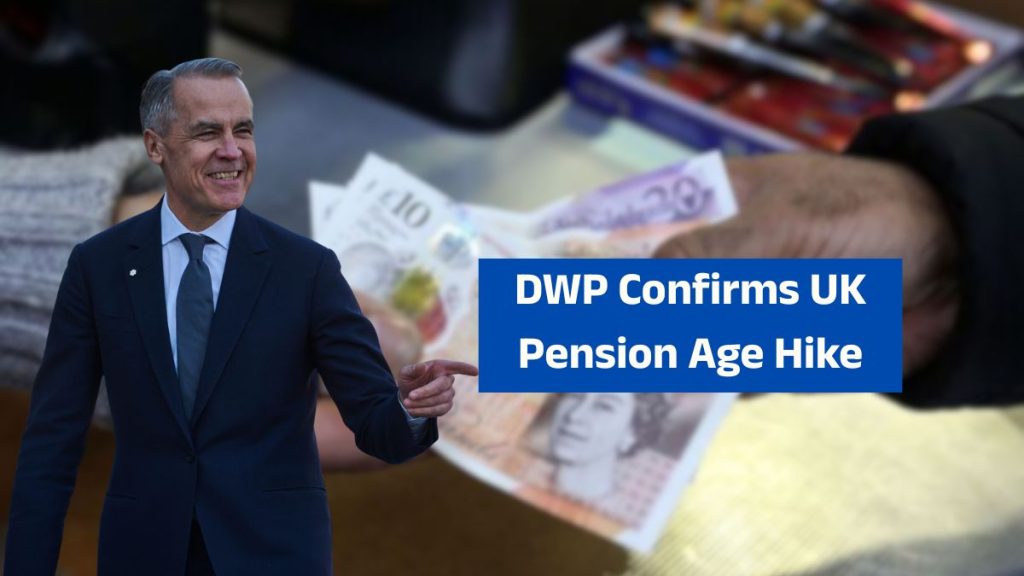The Department for Work and Pensions (DWP) has announced one of the most significant welfare changes in decades—a permanent rise in Universal Credit that will outpace inflation. This marks the largest real-term boost to benefits since 1980, directly impacting millions of households across the UK.
Alongside this reform, the DWP has also confirmed changes to bank holiday payment schedules for August 2025, ensuring families know when to expect their next deposits.
Largest Real-Term Boost Since 1980

According to the Institute for Fiscal Studies, this is the single largest permanent increase to the core out-of-work benefit rate in over 40 years.
- Nearly four million households will benefit.
- A single adult aged 25 or older will receive up to £725 extra per year by 2029/30.
The change ensures long-term improvements to welfare, aiming to provide real stability for families struggling with the rising cost of living.
Focus on Support for Severely Disabled Claimants
The Work and Pensions Secretary, Liz Kendall, highlighted the government’s commitment to protecting the most vulnerable.
One major update is that around 200,000 claimants with severe and lifelong health conditions will be exempt from reassessments. Known as the Severe Conditions Criteria, this safeguard ensures that those with serious medical issues can maintain long-term security without repeated administrative stress.
Additionally, reforms are being designed to allow disabled claimants to explore employment opportunities without the fear of losing vital benefits.
Yearly Increase in Health Element for Vulnerable Groups
From 2026/27 through to 2029/30, certain vulnerable groups will see yearly increases in their payments, at least matching inflation:
- Existing recipients of the Universal Credit health element.
- Individuals with a prognosis of 12 months or less to live.
- Claimants who meet the Severe Conditions Criteria.
This policy ensures that financial support remains stable and responsive to rising living costs, protecting dignity for those facing the most difficult circumstances.
August 2025 Bank Holiday Payment Changes
The DWP also confirmed an early payment schedule for benefits falling around the August 2025 bank holiday.
Payments originally due on Saturday 23, Sunday 24, or Monday 25 August will now be delivered earlier, on Friday 22 August 2025.
This update applies nationwide, including Scotland, regardless of regional bank holiday differences.
Benefits Impacted by Early Payment
The earlier payment schedule will affect a wide range of benefits. All of the following will be paid out on Friday, 22 August 2025:
- Universal Credit
- Child Benefit
- State Pension
- Personal Independence Payment (PIP)
- Attendance Allowance
- Disability Living Allowance (DLA)
- Carer’s Allowance
- Employment and Support Allowance (ESA)
- Income Support
- Jobseeker’s Allowance (JSA)
- Pension Credit
- Tax Credits
Important Note: While these benefits will arrive early, the next scheduled payments will continue on their normal timetable. Claimants are advised to plan carefully, as the gap until the following payment may feel longer
Why This Reform Matters for Millions
The DWP’s latest announcement provides a landmark step in modernising welfare. By permanently raising Universal Credit beyond inflation, millions of households gain greater protection against future economic shocks.
- Families benefit from more stable incomes.
- Disabled individuals receive long-term exemptions from reassessments.
- Bank holiday payment adjustments add predictability for budgeting.
This combination of measures represents one of the most ambitious welfare reforms of the decade, reinforcing the government’s pledge to support both working-age families and vulnerable citizens.
FAQs on the Universal Credit Increase and Payment Updates
Q1: How much more will Universal Credit recipients get by 2029/30?
A single adult aged 25 or older will receive up to £725 extra per year compared to current rates.
Q2: Who qualifies for exemption from Universal Credit reassessments?
Around 200,000 people with severe, lifelong health conditions under the Severe Conditions Criteria will be permanently exempt.
Q3: When will the early payments for August 2025 be made?
Payments due on 23, 24, or 25 August 2025 will instead arrive on Friday, 22 August 2025.
Q4: Which benefits are affected by the early bank holiday payment?
Universal Credit, Child Benefit, State Pension, PIP, Attendance Allowance, DLA, Carer’s Allowance, ESA, Income Support, JSA, Pension Credit, and Tax Credits.
Q5: Will this Universal Credit increase affect other benefits?
The permanent uplift is specific to Universal Credit, but the reforms also include yearly increases in the health element for vulnerable groups, ensuring broader support.












